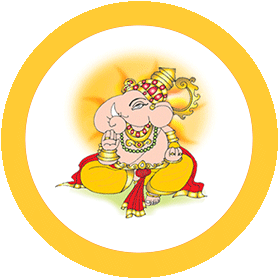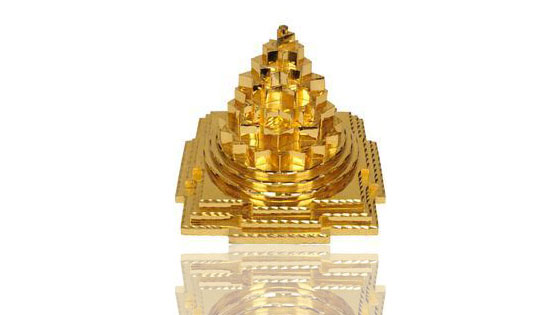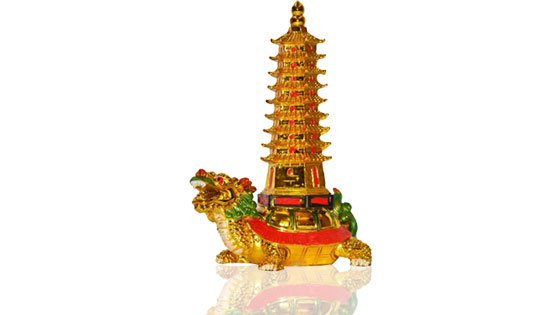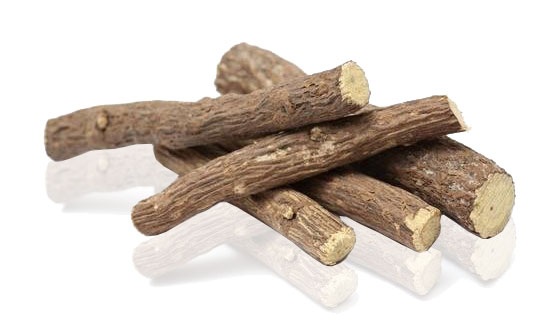Tulsi Vivah 2017: Welcome The Hindu Wedding Season
|

Tulsi Vivah, the ceremonial marriage of Tulsi plant with Lord Vishnu is on November 1, 2017. Tulasi Vivah also marks the beginning of holy wedding season of the Hindus. Let's get into the ritualistic mood and celebrated this day with with great fervor and joy.
Tulsi Vivah is a ritual of marriage of Tulsi plant (Holy Basil) and Lord Vishnu. The meaning of word Tulsi is incomparable, something that is unique. In Hinduism, Tulsi is considered a sacred plant and is planted at the entrance of the house to bring good fortune and positive energy in the house. It is believed that any Hindu household is not complete without the holy plant Tulsi.
This holy ceremony is performed anytime between the Prabodhini Ekadashi and the Karthik Purnima in the month of Karthik. This alliance also signifies the end of monsoon and beginning of the holy wedding season of the Hindus. It is believed that Tulsi is an incarnation of Goddess Lakshmi, who is the beloved of Lord Vishnu. This plant possesses different healing qualities that improve the brain and body.
Tulasi Vivah: The Ceremony
It is believed that every person who follows the tradition of marrying Tulsi to Lord Vishnu earns the credit of performing Kanyadaan (to marry off one's daughter). Tulasi Vivah is performed a day after Kartik Ekadashi.
Tulsi plant is dressed up and decorated with traditional ornaments to make her look like a bride. An image of Lord Vishnu or a stone is taken to depict the groom. To begin the marriage ceremony, the couple is joined by cotton thread. With all the Mantras the marriage is commemorated and rice mixed with vermilion is showered on the holy couple of Tulsi and Shaligram.
A very special vegetarian meal is prepared which is offered to Tulsi and Shaligram. The day marks the beginning of the Hindu wedding period.
Tulsi Vivaah: The Legends
As per the legends of Tulsi Vivah, Tulsi was the incarnation of Goddess Lakshmi who was born as Vrinda. She was married to demon King Jalandhar. She prayed with all the vigor and protected her demon husband from all the Gods.
Since every bad thing has to end one day, Jalandhar's end also came. At the request of all the Gods, Lord Vishnu converted himself as Vrinda's husband (Jalandhar) and started living with her.
On discovering the truth, she cursed Lord Vishnu and converted him into a stone which was named Shaligram. She also cursed him to get separated from his wife in the next birth as Lord Rama.
She then collapsed and a Tulsi plant was emerged from her body. From then it is believed that Lord Vishnu is worshiped using Tulsi leaves and this started the custom of Tulsi Vivah. She is very dear to Lord Vishnu and a ceremonial marriage takes place every year. As per another legend, Tulsi incarnated as a princess who fell in love with Lord Krishna. This displeased his beloved Radha and she cursed Tulsi.
In another story, Lord Krishna was weighted by gold by his wife Satyabhama. Even after using all the gold he could not be outweighed. His other wife Rukmani placed a Tulsi leaf on the weighing scale which outweighed him instantly.
Tulsi Vivah: Healing Power Of Tulsi
The Tulsi plant is considered to be having medicinal qualities and is grown in every Hindu household. Tulsi Puja is done daily in the morning and evening.
The Holy Basil is worshipped as a Goddess by Hindus. This plant is known to purify the atmosphere and decrease its pollution content by a large extent. It also works as an effective repellent for different harmful insects like mosquitoes and flies.
Tulsi oil is used for making different medicinal and herbal products. Tulsi extracts can also be used to cure many common ailments like headache, cold, stomach disorders, etc. Tulsi plant represents love, responsibilities, virtues and miseries of all the women. All the women relate to Tulsi and therefore, worship her with full devotion. Tulsi Puja is done after taking a bath and cleaning all the mental and physical dirt.
The place or vessel where Tulsi is planted is cleaned properly and Kumkum (Vermilion) is applied to its leaves. Women light Diyas around the plant and perform Aarti. Tulsi Vivah is specially celebrated with great enthusiasm by the women of India.
The ceremonial marriage of Tulsi and Shaligram (Tulsi Vivah) takes place every year. Tulsi Vivah will be celebrated with great fervor and joy in all Hindu households.
Astrological services for accurate answers and better feature
Astrological remedies to get rid of your problems

AstroSage on MobileAll Mobile Apps
AstroSage TVSubscribe
- Horoscope 2026
- राशिफल 2026
- Calendar 2026
- Holidays 2026
- Shubh Muhurat 2026
- Saturn Transit 2026
- Ketu Transit 2026
- Jupiter Transit In Cancer
- Education Horoscope 2026
- Rahu Transit 2026
- ராசி பலன் 2026
- राशि भविष्य 2026
- રાશિફળ 2026
- রাশিফল 2026 (Rashifol 2026)
- ರಾಶಿಭವಿಷ್ಯ 2026
- రాశిఫలాలు 2026
- രാശിഫലം 2026
- Astrology 2026


































